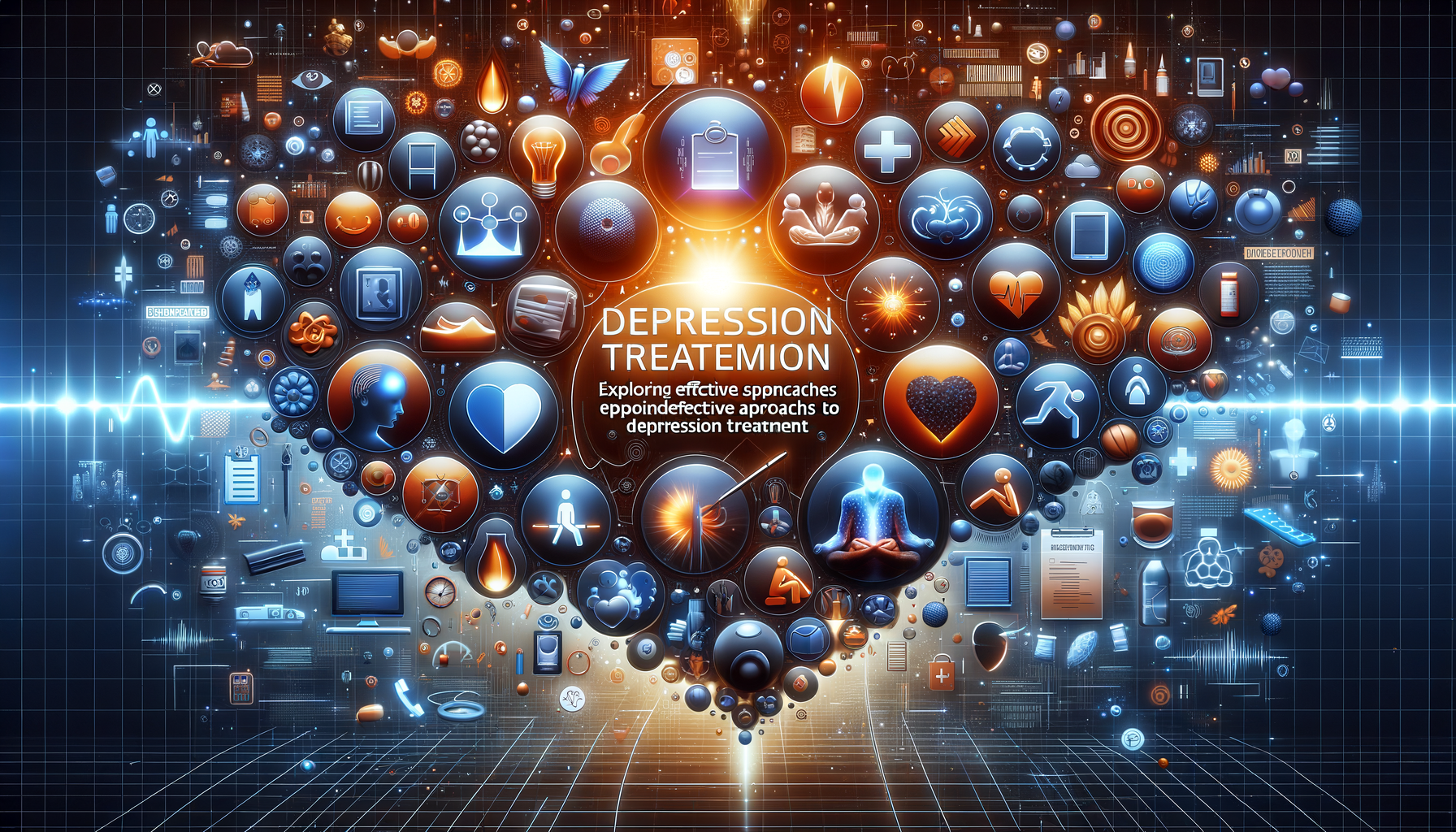Exploring Effective Approaches to Depression Treatment
Understanding and addressing depression through various treatment options is crucial for improving mental health and well-being.

Understanding Depression: A Complex Mental Health Challenge
Depression is a multifaceted mental health disorder that affects millions worldwide. It is characterized by persistent feelings of sadness, hopelessness, and a lack of interest or pleasure in daily activities. Understanding depression is crucial for recognizing its impact and the necessity for effective treatment. Various factors contribute to depression, including genetic predisposition, environmental influences, and biochemical imbalances in the brain. These elements interact in complex ways, making each individual’s experience with depression unique.
Symptoms of depression can vary widely, but common indicators include changes in appetite or weight, sleep disturbances, fatigue, difficulty concentrating, and thoughts of self-harm. It’s essential to recognize these symptoms early to seek appropriate help. The World Health Organization (WHO) highlights depression as a leading cause of disability worldwide, emphasizing the importance of addressing this mental health challenge with urgency.
Depression not only affects individuals but also has broader societal impacts. It can lead to decreased productivity, strained relationships, and increased healthcare costs. By understanding the complexities of depression, we can better appreciate the importance of comprehensive treatment approaches to alleviate its burden on individuals and society.
Psychotherapy: A Pillar of Depression Treatment
Psychotherapy, often referred to as talk therapy, is a cornerstone in the treatment of depression. It involves working with a trained therapist to explore thoughts, feelings, and behaviors. Cognitive Behavioral Therapy (CBT) is one of the most widely used forms of psychotherapy for depression. CBT focuses on identifying and changing negative thought patterns and behaviors that contribute to depressive symptoms.
Another effective form of therapy is Interpersonal Therapy (IPT), which concentrates on improving interpersonal relationships and social functioning. IPT helps individuals understand how their relationships affect their mood and vice versa. Both CBT and IPT have shown significant efficacy in reducing depression symptoms and preventing relapse.
The therapeutic process provides a safe space for individuals to express themselves, gain insights, and develop coping strategies. It can be conducted individually, in groups, or with family members, depending on the specific needs of the person. The flexibility and personalized nature of psychotherapy make it a valuable component of a comprehensive depression treatment plan.
Pharmacotherapy: Medications for Managing Depression
Pharmacotherapy involves the use of medications to manage depression symptoms. Antidepressants are the primary class of medications used, with several types available, including Selective Serotonin Reuptake Inhibitors (SSRIs), Serotonin-Norepinephrine Reuptake Inhibitors (SNRIs), and atypical antidepressants. These medications work by altering neurotransmitter levels in the brain, which can help improve mood and emotional regulation.
While medications can be highly effective, they are not a one-size-fits-all solution. It often takes time to find the right medication and dosage for each individual, and some may experience side effects. Regular follow-up with a healthcare provider is essential to monitor progress and make necessary adjustments.
In some cases, a combination of medications may be required to achieve optimal results. It’s important for patients to communicate openly with their healthcare providers about their experiences with medication to ensure the best possible outcomes. Pharmacotherapy, when combined with psychotherapy, can enhance treatment efficacy and support long-term recovery.
Alternative and Complementary Therapies
In addition to conventional treatments, alternative and complementary therapies can play a supportive role in managing depression. These approaches include practices such as mindfulness meditation, yoga, acupuncture, and herbal supplements. Mindfulness meditation, for instance, has been shown to reduce stress and improve emotional regulation, making it a beneficial practice for those with depression.
Yoga combines physical movement, breathing exercises, and meditation, offering a holistic approach to improving mental health. Research suggests that regular yoga practice can decrease symptoms of depression and anxiety, enhancing overall well-being.
Herbal supplements, such as St. John’s Wort, have gained popularity as natural remedies for depression. However, it’s crucial to approach these with caution and consult healthcare professionals, as they can interact with other medications and vary in effectiveness.
These alternative therapies can be integrated into a comprehensive treatment plan, providing additional tools for managing depression. They encourage a proactive approach to mental health, empowering individuals to explore various avenues for healing and recovery.
Conclusion: A Holistic Approach to Depression Treatment
Addressing depression requires a holistic approach that combines various treatment modalities tailored to individual needs. By understanding the complexities of depression and exploring different treatment options, individuals can find effective strategies for managing their symptoms and improving their quality of life.
Psychotherapy and pharmacotherapy remain foundational elements of depression treatment, offering structured support and symptom management. Meanwhile, alternative therapies provide additional avenues for healing, encouraging a more comprehensive approach to mental health care.
Ultimately, the journey to recovery is unique for each person, and finding the right combination of treatments is key. With continued research and awareness, we can enhance our understanding of depression and support those affected in leading fulfilling lives.